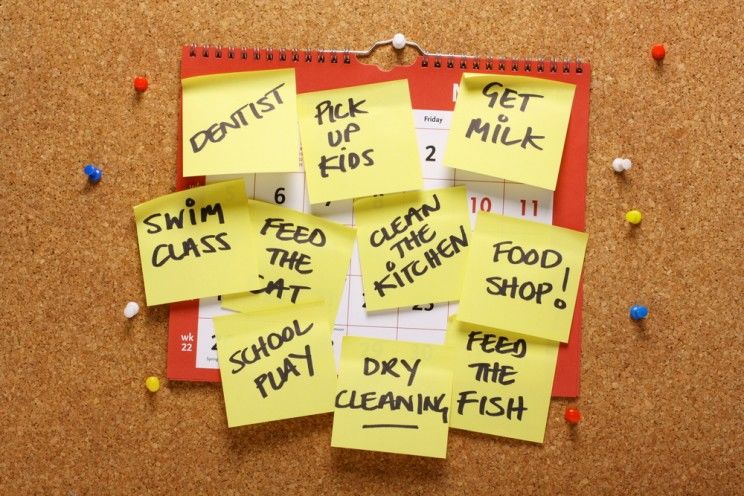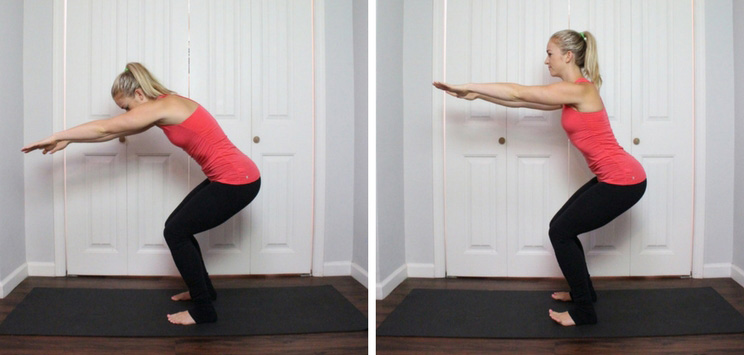Swamped, slammed, hammered, buried—there are so many ways to say our plate is full these days. Here’s how to break free of being too busy and get more done is less time.
Sure, we are all busy in our own right, but is there a difference between being too busy and overwhelmed? I believe so.
No one lives a carefree life without any sort of responsibility—we all have it. Whether you have a stressful job, are going through the emotional roller coaster of raising kids, or even have a combination of both in your life; things need to get done. Many things.
That is being busy. However, do we overwhelm ourselves with preventable clutter and stressors? Absolutely. We all do.
Stop wearing this badge with pride. There isn’t an award for your stress and dissatisfaction for your day-to-day life.
Think about it. Is that raise really worth it? What will you spend it on if you don’t have any time to use it?
Make no mistake, I’m not advocating a lifestyle that involves all play and no work, but rather to actually live by that “work/life balance” mantra everyone keeps repeating—and not acting upon. [tweet_quote] Carve out a little time in your day every day for the most important people in your life, but most importantly—you. [/tweet_quote]
A little will take you a long way here. Whether you need a little more organization, a few minutes to center yourself, to forge stronger relationships with those around you, to integrate more fun activities, or to just let go of some frustration—find the best way to keep your busy life less overwhelming with help from some of these tips.
1. Do You Know Your ABCs?

Can the dog get a bath after your presentation is put together? How about preparing for your budget meeting after you sort through and reply to high-priority emails?
It all starts with planning. After all, if we fail to plan, we plan to fail—which is enviably also a plan in its own right.
At the beginning of every day, take 10 minutes to label everything you know you need to get done. Yes, everything.
This can include anything from that huge product launch you are leading to taking a brisk walk in the park, or even sending out the cable bill.
What’s each item’s priority level?
“A-level” items need to get done today. For example, you have a presentation tomorrow. That list item should rank at a high level, like A-1. A bill that is due tomorrow should also rank high—A-2.
Fill in the “A category” to a realistic level, then move on to the “B-category.” Make sure that you DO schedule things like working out and personal time in this category, as they are also important.
“B-level” items are items that could get done today, but the world won’t end if they don’t.
Giving the dog a bath, organizing your file cabinet, preparing for a meeting next week, etc. However, every day you push these off, move one of them into the “A category” so you ensure they still get done.
Same goes with “C-level” items—except these are low-priority items. These are the things that can get done in a few days or even a few weeks, but still need to be on your radar. Use the same tactic with “B-level” items.
Always make sure you are adding new items and carrying over items from the day before as schedules are constantly changing. Soon you’ll see that scheduling is as easy as ABC.
2. Stop, Collaborate, and Listen

Sure, an hour a day can be a lot to ask for, especially if you have no idea what you are doing, but come on…you have 15 minutes to sit in silence.
If you have a hard time centering your concentration, apps like buddhify can be the solution for you, as this guided meditation app offers a break in your day for just about every situation you could imagine.
Can’t sleep? Meditate. Waiting too long for an appointment? Meditate. Have five minutes of down time? Meditate. This 10-minute meditation proves that there really isn’t an excuse to not integrate mindfulness into your daily routine.
3. Schedule Dinner Meetings

Meals don’t have to be elaborate. They could even be quick, 3-ingredient recipes, but leave your phones, tablets, and laptops out of the equation…even if it means turning them on airplane mode. Yes, this means having an actual, face-to-face conversation with those around you (cue horror music).
Believe it or not, this half an hour (it doesn’t have to be a marathon meal) will disconnect you from all of the clutter in your brain and will reconnect you with the ones that mean the most to you.
Do you live alone? Invite a friend or neighbor over, turn on some tunes, or just enjoy some quiet time to yourself. What if dinner isn’t your primetime? That’s also fine, just make sure that the table is a strict “no phone zone” for at least one meal every day. It will become a mini-sanctuary for you.
4. Jump on Your Hobby-Horse

At the time, it seems relaxing, but your mind is probably still cycling through what you should be getting done, making you feel guilty about your couch time.
Instead of constantly mind-melting, bring some achievement into that time with one of those long forgotten hobbies. Do you love cars? Build some toy models. Are you a creative soul? Get an adult coloring book or start a blog. How about philanthropy? Volunteer for a cause you are truly passionate about.
Not only will these hobbies take your mind off of the hustle and bustle of daily life, but you’ll find yourself excited to spend time on them without the guilt of “doing nothing.”
Perhaps you are essentially adding more to your schedule, but doesn’t it sound better than 5 hours of Laguna Beach reruns? As long as this activity isn’t becoming another box to check, this is supposed to be decreasing stress.
5. Sleep it Off

You have until you fall asleep to be annoyed with the outcome of this day until you have to move on. What’s done is done. [tweet_quote] Always remember, no matter how frustrating this day was—the sun will always rise tomorrow, regardless. [/tweet_quote] You can’t beat yourself up about the things you didn’t get done, the tasks you did wrong, or even the things you forgot. You can only move forward.
Make tomorrow a better day, and learn from what happened. Maybe even keep a notebook to jot those negative thoughts down, so you can send them into the universe and be done with them.
That notebook can also serve as a place for solutions. How did you solve that miscommunication with your boyfriend? What could you do differently next time?
Write it down—get those thoughts out of your head before you turn the lights out.
Changing your thought process and attitude will help you compartmentalize and tackle these issues with a clearer head tomorrow. After all, if you don’t sleep tonight, you are more likely to make mistakes or perform at a lower level all around tomorrow.
The sun has set today, but it always rises again tomorrow. Make it your mantra.
(Read This Next: 10 Ways to Save Time Everyday)


 Why Children Struggle with These 3 Food Hurdles
Why Children Struggle with These 3 Food Hurdles









Show Comments